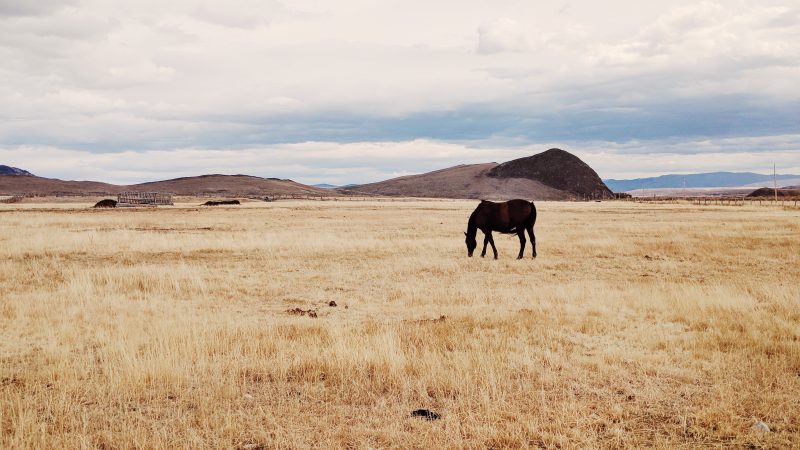After my fiancée said she found someone else and broke off our engagement, I’d been devastated. I grew weary of friends and relatives saying, “Miguel, I’m so sorry to hear your wedding was called off. What the heck happened?”
I needed a fresh start, so I jumped at a job offer from a company in Madison, Wisconsin.
As a Latino coming from San Antonio with its rich Hispanic culture, Madison was a cultural shock. I worked and socialized with Anglos, who were generally welcoming, but I still felt like an outsider. When I got out into rural Wisconsin, I’d encountered some down-right racist remarks.
I had grown up on a small ranch in New Mexico and rode in junior rodeo as a teenager. Fortunately, I found a great riding stables near Madison, that was owned by this old cowboy named Charlie, who looked like the Marlboro man, but he didn’t smoke.
He’d been a top rodeo rider when he was younger. I looked forward all week to riding there on Saturdays and enjoyed shooting the bull with Charlie.
One day I was sitting at Starbucks, when a woman behind me remarked, “Hey, I just noticed you’re reading the same book as me. How do you like it?” I turned my head, and to my surprise, saw a young Hispanic woman about my age, with beautiful brown eyes and a smile that radiated warmth.
We started chatting and really hit it off. She was studying at the University of Wisconsin on a scholarship. Her name was Maria, and before she left she gave me her phone number.
The next day, I texted her about getting together for dinner and got a quick response: Sounds great.
While I walked Maria home after dinner, she mentioned going horseback riding as a teenager, and said, “I’d love to find a place around Madison to go riding.”
I told her about Charlie’s stables, and we agreed to go riding together the next Saturday morning.
When we arrived at the stables, Charlie walked over, his ever-present Stetson hat pulled low. He remarked, “Miguel, I’ve got Corky here for you. I ride him myself.” Corky was a beautiful chestnut-colored stallion.
He said to Maria, “Misty shouldn’t give you any trouble, young lady.” Charlie was old-fashioned and used terms like “young lady.”
Maria reached into her jacket pocket and pulled out a carrot she gave to Misty, a nice looking bay-colored mare. I could see they’d get along just fine.
The day was perfect for horseback riding, sunny, but not too warm, with a light breeze rustling the vibrant-green spring leaves. The air felt alive with a symphony of chirping birds. Maria enthused at one point, “Isn’t it just gorgeous. Look at that pretty carpet of little purple wildflowers over there.”
We walked or trotted the horses on the trails through the woods and galloped across several open fields, giving Corky and Misty a good workout. Corky and I were getting along like old friends and Maria seemed to be thrilled with Misty.
As we entered a large open field, I lightheartedly challenged Maria, “I’ll race you to that old oak tree on the other side.” Without saying a word, Maria kicked Misty and took off like a flash. I set off in pursuit on Corky.
I’d almost caught up, when Corky suddenly veered off and pulled up lame. After dismounting, I could see that Corky was favoring his left-front leg. Examining it, I couldn’t see anything wrong. I also didn’t see any holes he might have stepped in. The stables were close, so I walked there holding Corky’s reins.
As we entered the barn, Charlie walked over. He didn’t look pleased, and snapped with a derisive tone, “Hey hombre, what did you do to my horse?”
“Hey, my name’s not ‘hombre,’ it’s Miguel, and I didn’t do anything to your horse,” I replied and then started to explain what happened.
Charlie cut me off before I was finished, “Hey hombre, why don’t you go back where you belong.”
I erupted, “You racist bigot! Where do you think I belong, Mexico, because my skin’s brown. My ancestors have lived in New Mexico since the 1800’s. My family tree in the U.S. goes back over six generations”
Before things went any further and one of us started swinging, Maria took firm hold of my arm and led me out of the barn, while saying, “Come on, let’s go. You both need to cool off.”
As soon as we got in my car, I turned to her and said, “I’m not letting anyone get away with racist garbage like that.”
She replied, “I understand, but my father had a bad temper and ended up in prison because of it, which is a long story. Arguing like that never settles anything.”
I didn’t know what to say beyond, “I’m really sorry.” To relieve the silence in the car as we drove back to Madison, I turned on the radio to my favorite music station. Maria spent most of the time watching the scenery. She was upset; I just didn’t realize how much.
When we got to her apartment, she opened the car door and hopped out before I could get out to open it for her. Leaning her head back in, she said, “Thanks very much,” and then turned and walked to her front door.
After a few days, I texted Maria about getting together after work. I got this text back: N/A. She was also “not available” for anything else I invited her to do over the next several days.
When I phoned her, the call went to voicemail and she never called back.
#
author bio:
 Alex de Cruz has had a passion for fiction and writing since reading Hemingway as a teenager. Recently, he’s become a devotee of flash fiction, short story, and creative nonfiction writing. Alex has stories in CafeLit, Flash Fiction Magazine, and Potato Soup Journal, as well as forthcoming pieces in Adelaide, Down in the Dirt, and Scarlet Leaf Review. He lives with his wife in Santa Barbara.
Alex de Cruz has had a passion for fiction and writing since reading Hemingway as a teenager. Recently, he’s become a devotee of flash fiction, short story, and creative nonfiction writing. Alex has stories in CafeLit, Flash Fiction Magazine, and Potato Soup Journal, as well as forthcoming pieces in Adelaide, Down in the Dirt, and Scarlet Leaf Review. He lives with his wife in Santa Barbara.
